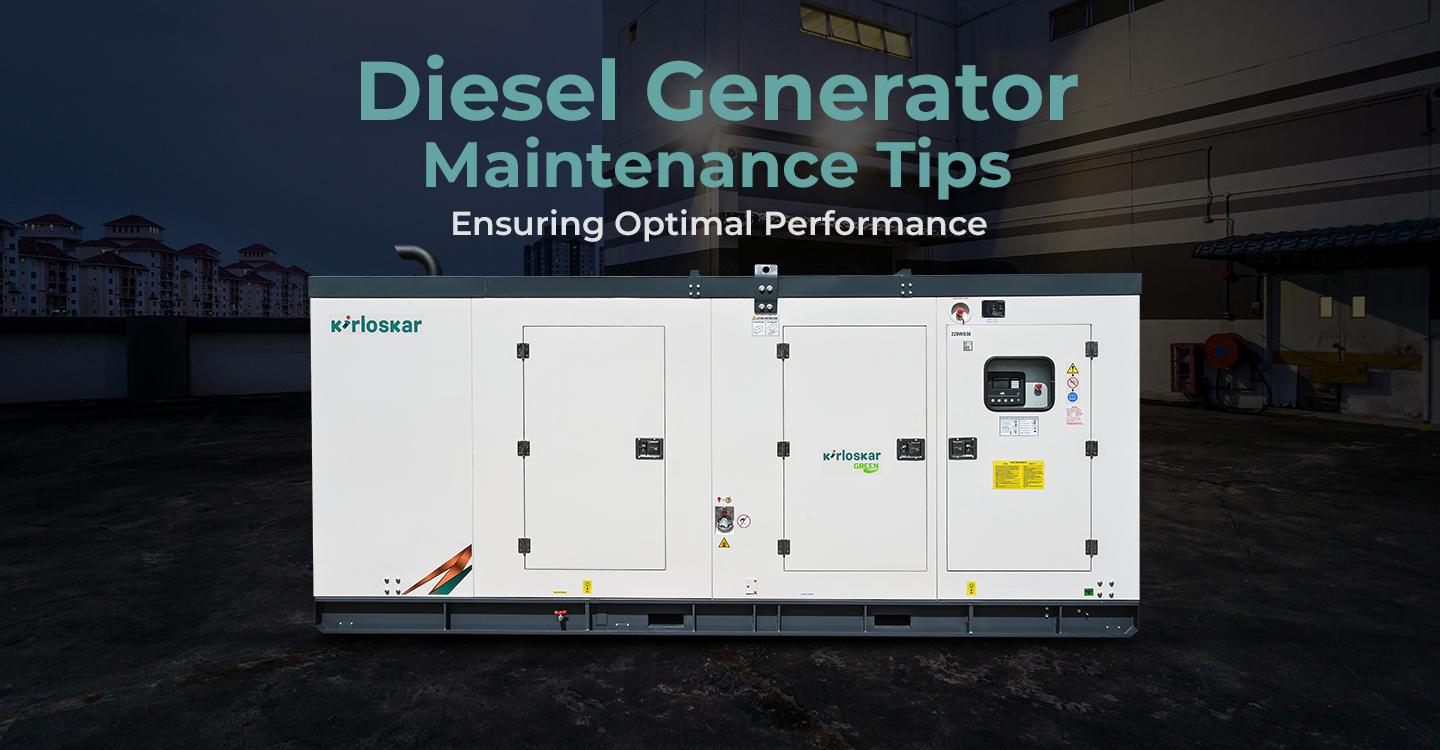
Diesel Generator Maintenance Tips: Ensuring Optimal Performance
Diesel generators are a reliable power source for businesses and homes, particularly in regions with frequent power outages. However, to ensure their optimal performance and longevity, regular maintenance is crucial. This blog post will provide you with practical tips on essential maintenance tasks.
Understanding the Importance of Regular Maintenance
Regular maintenance of your diesel generator can significantly extend its lifespan, improve fuel efficiency, and prevent unexpected breakdowns. By following a consistent maintenance schedule, you can minimize downtime and maximize productivity.
Key Maintenance Tasks
1. Oil Changes:
Frequency: The frequency of oil changes depends on the generator's usage, but it's generally recommended every 500 hours of operation.
Procedure:
- Drain the old engine oil completely.
- Replace the oil filter with a new one.
- Fill the engine with the recommended type and quantity of oil.
- Check the oil level regularly and top up if necessary.
2. Fuel Filter Replacement:
Frequency: Replace the fuel filter every 500 hours of operation or annually, whichever comes first.
Procedure:
- Drain the fuel tank to prevent fuel spillage.
- Access the fuel filter and remove it.
- Install a new fuel filter, ensuring it's properly tightened.
- Refill the fuel tank with clean, fresh diesel fuel.
3. Air Filter Cleaning or Replacement:
Frequency: Clean or replace the air filter every 250 hours of operation or annually.
Procedure:
- For reusable air filters, clean them with compressed air or a brush.
- For disposable filters, replace them with new ones.
- A dirty air filter can restrict airflow and reduce engine performance.
4. Spark Plug Replacement:
Frequency: Replace spark plugs every 500 hours of operation or annually.
Procedure:
- Use a spark plug socket to remove the old spark plugs.
- Install new spark plugs, ensuring they are tightened to the correct torque.
- Worn-out spark plugs can lead to misfires, reduced power output, and increased fuel consumption.
5. Cooling System Maintenance:
- Radiator Cleaning: Clean the radiator to remove debris and ensure efficient cooling.
- Coolant Level Check: Regularly check and top up the coolant level as needed.
- Coolant Replacement: Replace the coolant according to the manufacturer's recommendations.
6. Battery Maintenance:
- Battery Charging: Keep the battery fully charged, especially if the generator is not used frequently.
- Terminal Cleaning: Clean the battery terminals to remove corrosion.
- Battery Replacement: Replace the battery if it's old or damaged.
7. Belt Inspection and Adjustment:
- Inspection: Visually inspect the belts for wear, cracks, or loose tension.
- Adjustment: Adjust the belt tension as needed to ensure optimal performance.
Additional Maintenance Tips
- Regular Inspections: Conduct regular visual inspections of the generator for any signs of damage or wear.
- Fuel Storage: Store fuel in clean, sealed containers to prevent contamination.
- Generator Shed: Store the generator in a dry, well-ventilated shed to protect it from the elements.
- Professional Servicing: Consider professional servicing every 1,000 hours of operation to ensure thorough maintenance.
By following these maintenance tips, you can significantly extend the lifespan of your diesel generator and minimize downtime. Regular maintenance not only improves performance but also enhances fuel efficiency and reduces emissions. Remember to consult your generator's manual for specific maintenance instructions and recommendations.
